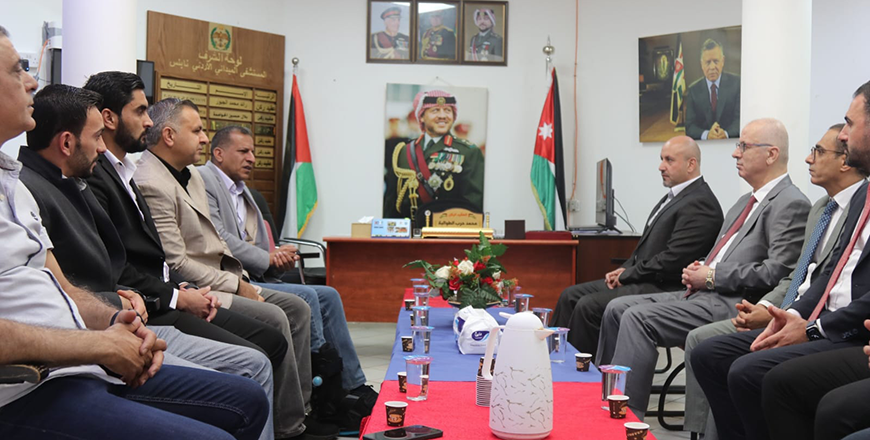AMMAN — Former Palestinian prime minister Rami Hamdallah on Saturday visited the Jordanian field hospital in Nablus, accompanied by Director of An-Najah National University Hospital Iyad Maqbool and several Palestinian officials.
The visit aimed to assess the medical services provided to residents of Nablus Governorate and surrounding areas, while underscoring the importance of continued medical cooperation between Palestinian and Jordanian institutions, the Jordan News Agency, Petra, reported.
The commander of the hospital force welcomed the visit, highlighting its significance in reinforcing bilateral ties and cooperation. He reiterated the hospital’s ongoing commitment to delivering medical and humanitarian services in support of the Palestinian healthcare sector.
During the tour, Hamdallah was briefed on the hospital’s services, including specialised care, emergency treatment, and the use of advanced medical equipment that contributes to improving patient outcomes. He also received a detailed overview of the operational mechanisms behind the hospital’s healthcare delivery.
Hamdallah expressed deep appreciation for the efforts of the Jordan Armed Forces–Arab Army (JAF) in bolstering medical capacities in Nablus. He commended the continued support of His Majesty King Abdullah and HRH Crown Prince Hussein for the Palestinian cause, describing it as a reflection of the strong and historic ties between the two peoples.
